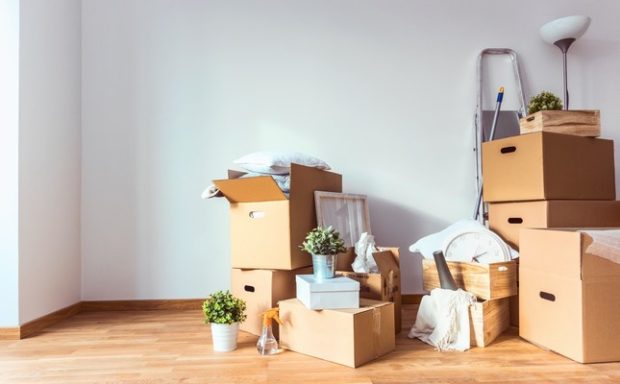Let’s face it; moving is not the most enjoyable thing to do. However, the idea of getting into a new house is by itself exciting: which is why people go ahead and move in the first place. As much as most of the stress is unavoidable, there is still something that you could do to ease it. We are talking about the last minute rush, heavy lifting, forgetting to pack things, lack of sleep, and breaking stuff. The best part about this is that the stress is only temporary: well, until you decide to move again.

Once you are settled, you begin to enjoy your new space and forget about the painful joints and the broken pieces of furniture. Here are tips that will make the moving process more bearable.
1. Be psychologically prepared
You need first to accept the fact that moving has its own set of challenges. That is expenses, getting your hands dirty, sleeping late, and so on. The moment you come to terms with those facts, the less the impact the challenges will have on you. Stress is a very reasonable response to demanding situations.
2. Allocate enough time for the process
As aforementioned, it is almost impossible to evade all the pressure that comes with moving. However, you can make things better by allocating ample time for you to get things done. One of the things that add to the pressure of moving is not being prepared. Set aside about three days to complete the whole process. The first day could be for packing your belongings. The second day for moving, then you could use the third day for settling in and resting.
This will give you enough time even to source a reliable moving company that will help you get settled in your new place. Avoid the rush.
3. Hire a moving company
Anyone that hires a moving company lifts a significant amount of burden, which leads to less stress. By hiring a moving company, you may not have to even lift a finger. Well, you will be required to part with a couple of bucks, but it will all be worth it. Professional movers will help you pack your belongings and deliver them safely to your new home.
With moving services, you will be guaranteed of no furniture or any other expensive belongings breaking. And if anything happens, you will be able to do replacements as most of the movers have insurance. On top of that, it will take you less time to move. If you have little time on you for this, hiring professional movers would be instrumental.
4. Stay organized
Do you know what else about moving makes it stressful? Misplacing things. The good news is that you can avoid this. Stay organized. Get as many boxes as you can to accommodate your belongings. For you to be able to trace the different items when you are finally in your new house, care to label the boxes.
Staying organized will spare you the headache of trying to find documents or worse still, losing them.
5. Have adequate sleep
Lack of enough sleep causes stress. Do not let yourself be overwhelmed with packing and forget that it is essential to rest. As much as you may feel that by sacrificing yourself will help you get a lot done, at the end of it all, you will be overcome by stress.
Recharging will help you be even more productive in whatever you will be doing pertaining to moving.
6. Start small
If you are doing the packing by yourself, or with the help of a friend, you need to acknowledge the importance of packing a thing at a time. If possible start with a room at a time. You can start with your kitchen then head for your closet, the bathroom and so on. By trying to pack everything at the same time, you will be spreading yourself thin.
The worst part is that you will have a tough time locating stuff once you are in your new house. Such an organization will also make the process of unpacking less stressful and more enjoyable.
Moving comes with pressure. It is unavoidable, but there are ways that you can use to reduce this. One is by hiring a moving company. Getting help will ease the workload and help you save time. The next time you move, consider employing the tips above for stress-free moving. Planning ahead of time will also help reduce last-minute pressure.



